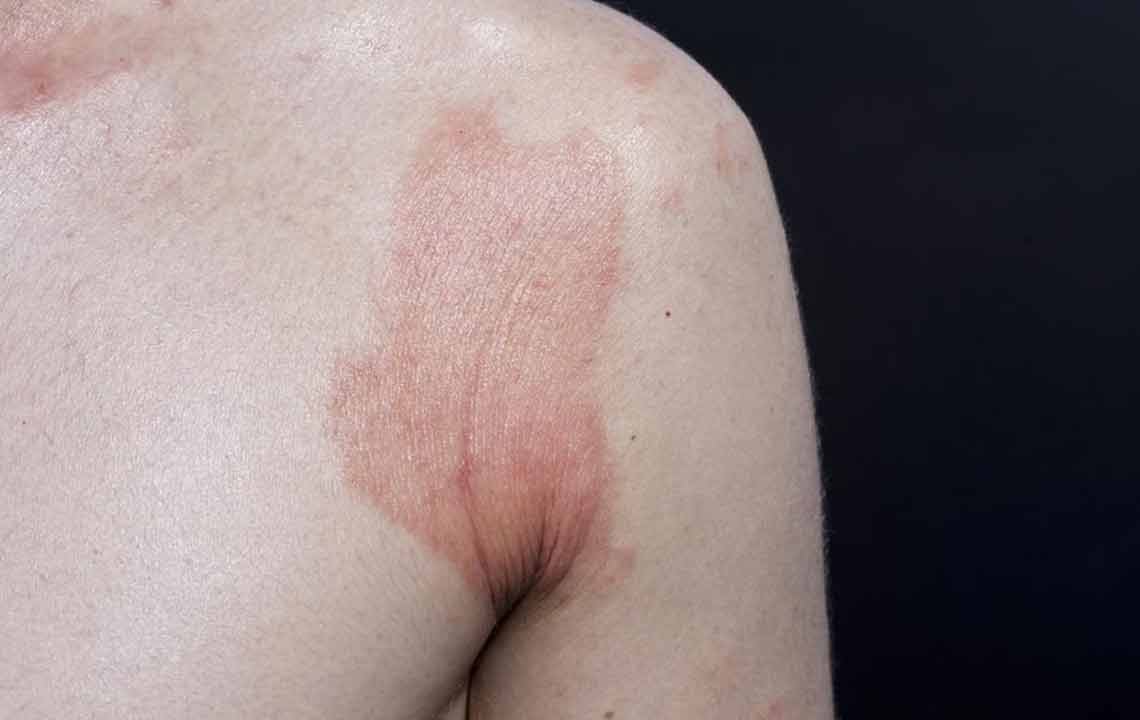How to identify a skin rash
Rashes, or areas of itchy, swollen skin in the body, can be highly uncomfortable, with varying signs and symptoms, mainly depending on the trigger. While in some cases, skin conditions like atopic dermatitis (eczema) and psoriasis may trigger rashes, they might also be caused by other problems, such as stress, allergic reactions, and insect bites. Although rashes are not life-threatening, one should identify their signs early and consult a dermatologist for timely treatment.

Causes
Some of the common causes of a rash are:
- Chemicals in beauty, sanitary, and cleaning products like detergents, soaps, and creams
- Dyes and paints used in clothing
- Chemicals in rubber, latex, or elastic products
- Poisonous plants like poison oak, poison sumac, or poison ivy
- Prescription treatments
- Insect bites like mosquitoes, ticks, and other bugs
- Underlying bacterial infections or diseases
Rashes can occur in a few minutes post the reaction or as a slow build up over a period of time. Observe the rash and depending on the itching, pain, or appearance of the rash you can immediately see a doctor to find the cause of the rash. If it reduces within a day or two then it is likely to be a reaction to a medicine or chemical, however, if it persists and doesn’t go away for days then it could be a bigger problem.
Common rashes and how you can identify them
1. Contact dermatitis
This is caused by contact with an irritant that is causing an allergy. The skin tends to appear red and burns or seems very itchy. There could also be accompanied swelling where the irritant has touched the body. You can immediately wash the area with mild soap and water, and dry the area.
2. Insect bites
Most insect bites are identified by bumps where the insect has bit you. The bump will swell up and cause the surrounding skin to turn red. Insect bites like mosquito, ants and bed bugs often itch and cause pain as well. You need to visit a doctor if you have bites of spiders, TseTse flies or Fire Ants to rule out any further poisoning.
3. Fungal infection
Fungal infection rashes are some of the most common rashes. They are usually topical and caused by fungi. Vaginal yeast infection, ringworm, and fungal nail infection are often observed. These fungal infections have symptoms like itching, peeling, swelling and the cracking of the skin. The fungal infections require medical attention and won’t go away with normal washing and cleaning procedures.
4. Scabies
Scabies is caused by a species of mites and is an intense rash which itches and can lead to sores. The rashes are often found on wrists, elbows, armpits, waist, buttocks and the area between fingers. The rash appears as tiny red bumps and is essentially caused because the mite laid their eggs under the skin. It takes a while to notice the rash after the infestation. You will need immediate medical attention as it is contagious and spreads fast.
5. Hay fever
Hay fever is also known as allergic rhinitis. It is caused by allergies due to pollen and causes a widespread rash on the body like hives. The skin will turn bumpy and red, and over time also swell up. You need to take an allergy medication to get rid of this rash.
6. Measles
It is one of the most common communicable diseases and generally found in unvaccinated children. It is a respiratory disease, however, the biggest symptom is a widespread rash. The red and itchy bumps start at the head and start spreading all over the body. If this rash is accompanied by a runny nose, cough, fever, and white spots in the mouth then it could be measles. If you identify skin rash and have such symptoms, you need an immediate medical intervention.
7. Cutaneous Candidiasis
Candida fungus is a fungus that lives naturally in the body, however an increase in the fungi is harmful to the body. This disorder causes a rash to break out in the folds of the body like armpits, under breasts, groin area and in between fingers. It is often a result of tight clothing, folds in the body caused due to overweight and poor hygiene of the body. This is easily treated by working on these conditions and improving hygiene.
8. Eczema
Eczema is a severe skin disease and one of the symptoms is a skin rash. The skin becomes extremely flaky and dry and falls out. It generally affects the elbows, knees and the neck area. It causes intense itching and patients tend to scratch, leading to infections.
9. Shingles
It is a viral infection and brings a skin rash that causes intense pain and burning. The skin erupts in blisters on the neck, torso, or face. They often fill up with fluid and cause red patches on the skin. Medication is given to treat the infection and soon the rash will disappear.
If you identify skin rash that persists for a long time, consult your doctor immediately. The best way to avoid rashes is to maintain good body hygiene and have the habit of washing hands regularly. Hydration and moisturizing of the skin are also important as well as proper nutrition is required for a healthy and supple skin, which is free of rashes.